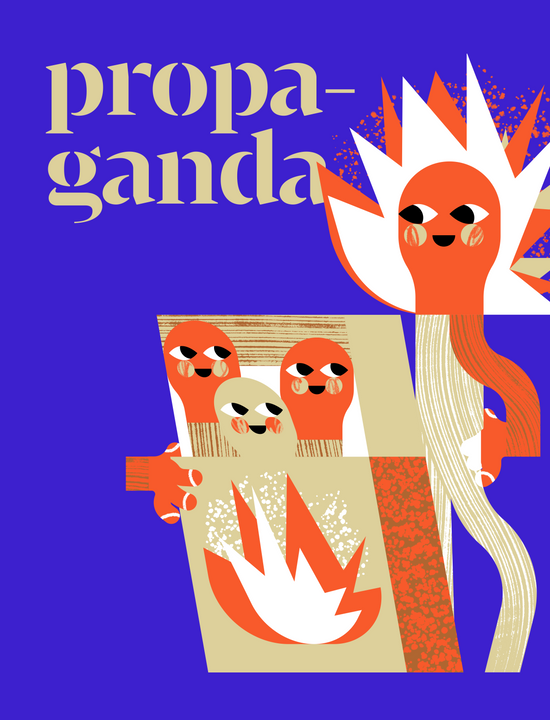Information for persuasion
The term ‘propaganda’ was coined in 1622 by the Catholic church, taking inspiration from Latin. In the Latin language, ‘propaganda’ means something like ‘planting’ or ‘sowing’. Those who create or spread propaganda try to ‘sow’ a certain idea in the minds of others, with the aim to influence their thinking and behaviour. Therefore, propaganda is a form of information aimed at persuasion.
Propaganda can take several shapes, so it’s not always a poster or an image. Songs, radio programmes, artworks, magazines, videos and even memes can be propaganda.
